With the right conversion tracking software, you can unlock powerful data across the entire customer buying cycle, identify your most profitable areas of marketing, increase sales, and significantly reduce your advertising costs.
If you’re not tracking your conversions, then you have no idea on whether or not your marketing is generating real value for your business.
Implementing conversion tracking software can help you determine which digital marketing activities are driving the most conversions, assign monetary values against your campaigns in tools like Google Analytics and continuously measure and improve your return on marketing investment.
But how do you find the right tool for you?
Fortunately, we’ve put in the research and shortlisted some of the best conversion tracking software and tools, designed to help you work more effectively.
For this article, we’ll discuss:
Without further ado, let’s jump right into it.
💡 Pro Tip
Ruler does a lot more than track your conversions. It tracks data on a visitor level, allowing you to successfully attribute conversions and marketing-generated revenue across multiple campaigns, ads, keywords and more.
Track where your conversions and leads came from with Ruler
Briefly, a conversion tracking tool essentially shows you what happens after a customer interacts with your website or one of your marketing campaigns and ads.
Conversion tracking tools are a must-have because, without them, you’ll be unable to judge the performance of your campaigns and make smarter decisions to improve your marketing effectiveness.
For a long time, the best solution marketers had for tracking conversions was Google Analytics goals and with good reason.
Related: How to set up and track conversions in Google Analytics
Google Analytics does a great job of telling you how many people visited your website, where they bounced and which campaigns are most successful at driving conversions on your website.
All useful information, yes, but it doesn’t provide you with much context into why your visitors do what they do.
That’s not all.
Out of the box, Google Analytics isn’t proficient at tracking conversions that happen offline, such as phone calls or in-store visits.
Now, if your objective is to drive clicks to your website, then Google Analytics is the holy grail of your marketing measurement.
But, like most online businesses, if your goal is to drive more conversions in the hope that they’ll turn into a sale or deal one day, then Google Analytics alone isn’t enough.
Sure, it can show you data to help make assumptions about the performance of your marketing and ROI, but this leaves much open to interpretation.
By combining your Google Analytics with conversion tracking software, you can gain access to insight to help optimise your campaigns for better results, both online and offline.
When evaluating a conversion tracking tool, there are a few things you should look out for to help get the most value for your money.
Make sure the tool you use captures the entire customer journey. There’s no point investing in a sophisticated system if it’s going to ignore more than half the journey.
Related: Guide to customer journey stages and how to track them
Complete visibility over the performance of your online and offline channels is crucial when it comes to making budgetary decisions that can make a difference in the way you generate conversions.
If you’re a business that relies on phone calls or traditional methods as a way to close deals, then you should always ensure that the conversion tracking tool you use can seamlessly integrate your online and offline data.
💡 Pro Tip
Do you know which digital marketing channels are driving your most valuable offline sales? We’ll assume the answer is no. Download our eBook on offline conversion tracking and learn how to connect the leads you generate online with the sales you convert offline.
Complete guide to offline conversion tracking
Ideally, the conversion tracking tool you choose should have the functionality available to integrate with your CRM and other reporting tools.
Related: How to integrate CRM data with Google Analytics for closed-loop reporting
Integrating with your CRM will provide you with complete visibility into your customer journey and will help you make smarter decisions about where to allocate your media spend.
Now, there are many solutions which you can use to help track and measure your conversions. Although to make things easier for you, we’ve shortlisted the best conversion tracking tools for 2022 and beyond. Let’s not waste any more time, and jump into our recommended solutions for tracking conversions and leads.
First on our list is Ruler. We may sound biased, but once you see it, you’ll understand why.
Ruler is a closed-loop marketing attribution that tracks each anonymous visitor over multiple sessions, traffic source and keywords.
Related: How to view full customer journeys with Ruler
Once an anonymous visitor converts into a lead, Ruler matches the user’s details to their marketing touchpoints and sends all this data to your CRM.
This populates the sales team’s system with conversion and marketing data, which helps them learn more about each prospect before reaching out to them.
Whenever a lead closes into a customer or sale, the revenue data is automatically sent back into the Ruler Analytics dashboard. Here it’s attribute to the touchpoints that played a key role in the transaction.
Related: How Ruler attributes revenue to your marketing
You can integrate this revenue data with Google Ads, Analytics and more so that you can measure marketing ROI straight from the reporting tools you use every day.
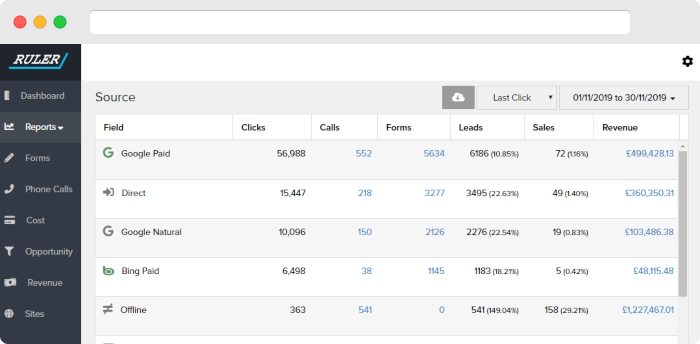
Pricing for Ruler starts at £199 a month. You can save 20% by paying annually and there are also discounted rates for agency partners.
💡 Pro Tip
Want to learn more? See first-hand how Ruler can track your entire customer journeys and attribute revenue to your marketing leads.
Book a free demo
Adinton tracks your marketing spend, clicks, and conversions, and then provides you with information on the performance on each channel, and more importantly, whether you are under or over-invested.
Once the data is collected, Adinton offers insight on how to improve your campaign performance and apply your marketing resources in the most effective ways.
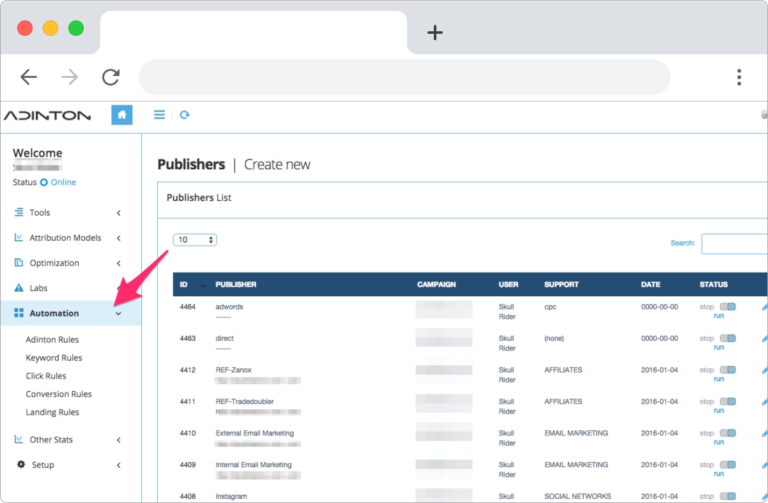
Price: From $79/month
Best for: All-in-one suite of marketing tools.
Adjust is a robust platform designed to help improve the performance of your mobile applications. It provides you with the ability to track which ads led to which conversions, down to the ad creatives that your users saw.
They integrate directly with over 2,000 advertising partners so you can easily set up and start capturing your campaign data.
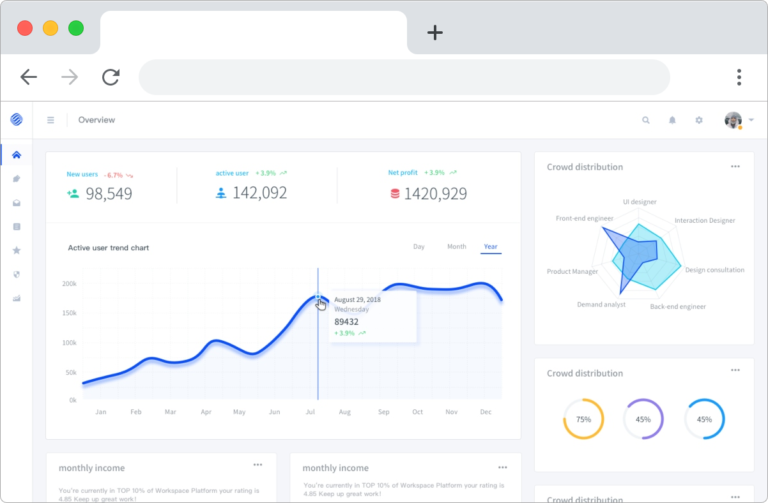
Price: Available on request
Best for: Businesses that revolve around a mobile app.
Adobe is another analytics solution that you can use to track visitors and conversions happening on your website. Omniture has a flexible UI that allows you to drag and drop data visualisations for effective reporting.
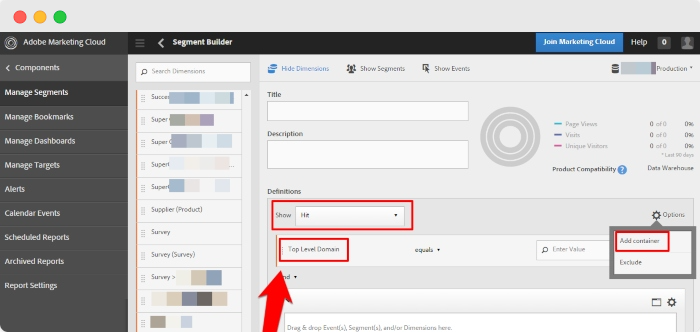
Price: Available on request
Best for: Enterprise Companies who want to know their users engage with their product and services.
ClickMeter is an easy to use web-based professional analytics service, which allows marketing agencies and professionals to create and manage more successful campaigns.
Its functionality helps you compare and monitor all of your marketing links in one place so that you can focus on increasing your conversion rate.
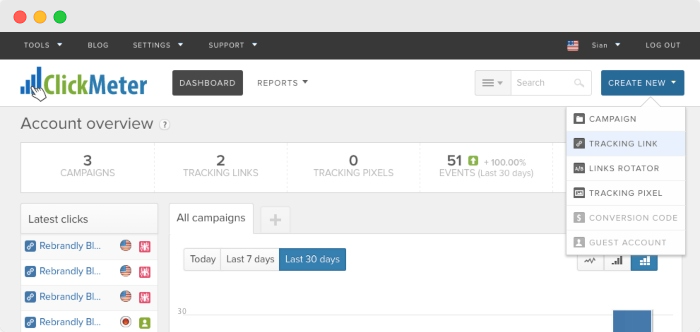
Price: From $29.99
Best for: Affiliates, publishers, and agencies.
Funnel lets you quickly review your campaign data from every channel in one place so you can measure and track which channel contributed your most valuable conversions.
The functionality lets you quickly review your campaign data from every channel and so that you can make smarter decisions about your media spend.
You can also import the data into your tools like Google Data Studio, Sheets, and Google Analytics.

Price: Available on request
Best for: Businesses that revolve around a mobile app.
Most widely used web analytics service for reporting website traffic. Google Analytics can show you what happens after a customer interacts with your ads — whether they purchased a product, signed up for your newsletter, called your business or downloaded your app.
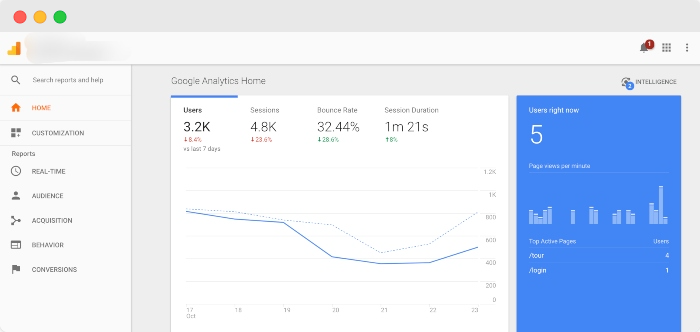
Price: Free
Best for: All data-driven marketing teams.
Heap automatically captures all user interactions from apps on the Web and iOS without requiring the use of any conversion tracking code. It allows you to take a granular approach to measurement and track how specific users navigate throughout your applications.
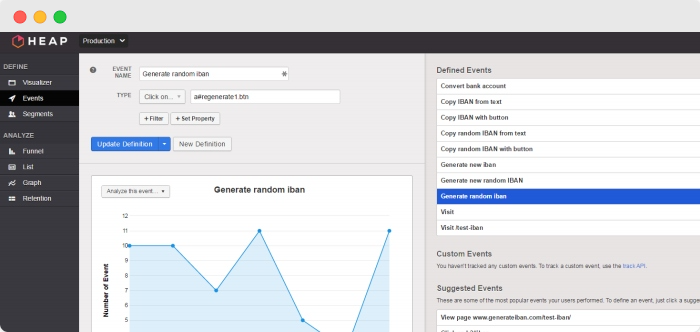
Price: Available on request
Best for: Non-technical teams.
KissMetrics is a behavioural analytics solution that assigns unique website visitor IDs and tracks interactions such as clicks, pages visited and conversions. It provides key insights on which areas of marketing are driving your most valuable conversions for your business.
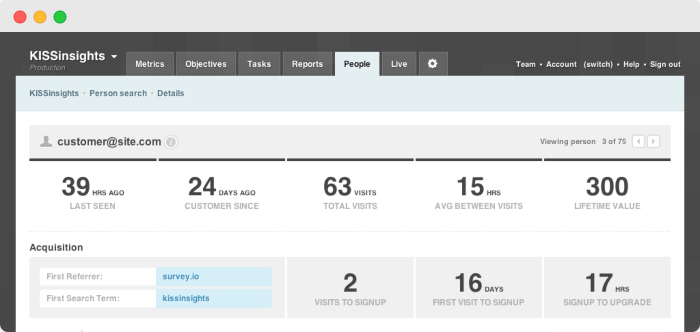
Price: From $299.00 per month
Best for: SaaS and eCommerce businesses.
Formerly known as Piwik, Matomo is an open-source analytics platform that has two different hosting options – cloud and on-premise. Matomo is easy to set up and includes many of the advanced features you’d expect in an analytics platform such as conversion tracking.
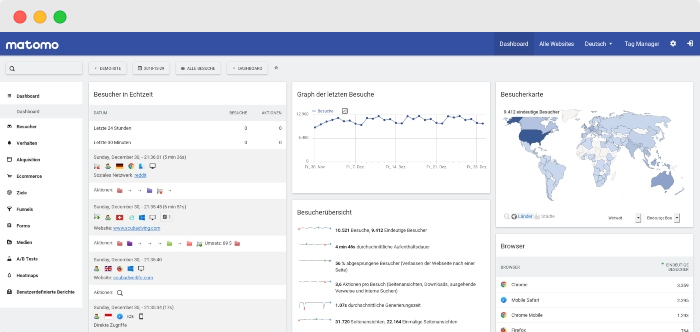
Price: Free and paid
Best for: All data-driven marketing teams.
Mixpanel offers a solution for A/B testing, predictive analytics, and conversion tracking. Using a tool like Mixpanel, users can analyse how and why their users engage, convert, and retain across the web, mobile, and smart devices.
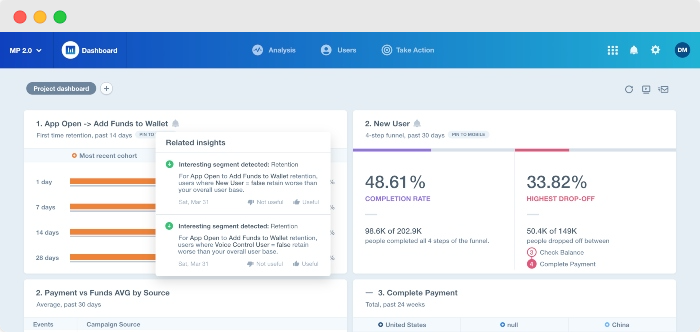
Price: Free and paid
Best for: Companies who want to know more on how their users engage with their product and services.
Webtrends is another analytics tool that provides actionable insights to help increase customer engagement and boost revenue.
Driven by data tracking and customer behavior, it revolutionizes the way you interact with your customers by giving you better control in segmenting out audiences.
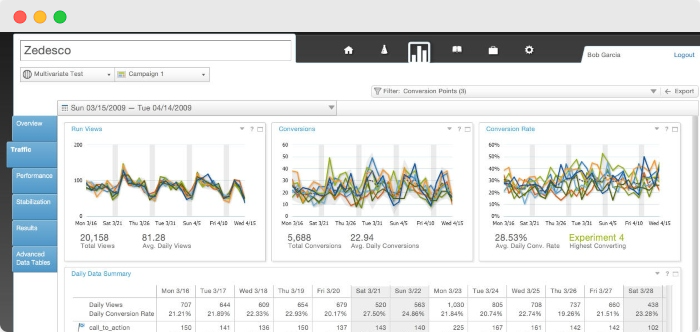
Price: Enterprise package from $900/month
Best for: Enterprise Companies who want to know their users engage with their product and services.
Conversion tracking tools are key when reporting on digital marketing success. Having visibility of your conversion performance provides insight into the success of your marketing and can help you:
Track prospects through to the opportunity stage and provide proof on the success of your marketing campaigns by reporting on value rather than vanity metrics.
Related: Track sales opportunities and prove your impact on ROI
Conversion tracking software will help you prove the ROI of your channels, even if your leads only engage with them once or twice, at the start or middle of their buying journey.
💡 Pro Tip
Download the eBook and learn how to track your customer touchpoints, unlock valuable data across the entire buying cycle and gain key insights to make smarter budgetary decisions.
When it comes to managing your budgets, you’ll be able to spend more resources on the channels that have the most impact and reduce spend on those that aren’t providing value in the customer journey.
If you’re not tracking your conversions, you’re not effectively measuring your return on investment.
Rather than guessing which digital marketing strategies are generating revenue, use conversion tracking software and start evidencing the effectiveness of your campaign.
Choosing the right solution is no simple task, but hopefully, we’ve made the process a little easier for you by shortlisting the best conversion tracking tools for marketers.
If you’d like to hear more about Ruler, then feel free to arrange a call with our analytics experts and take your end-to-end conversion tracking to the next level.
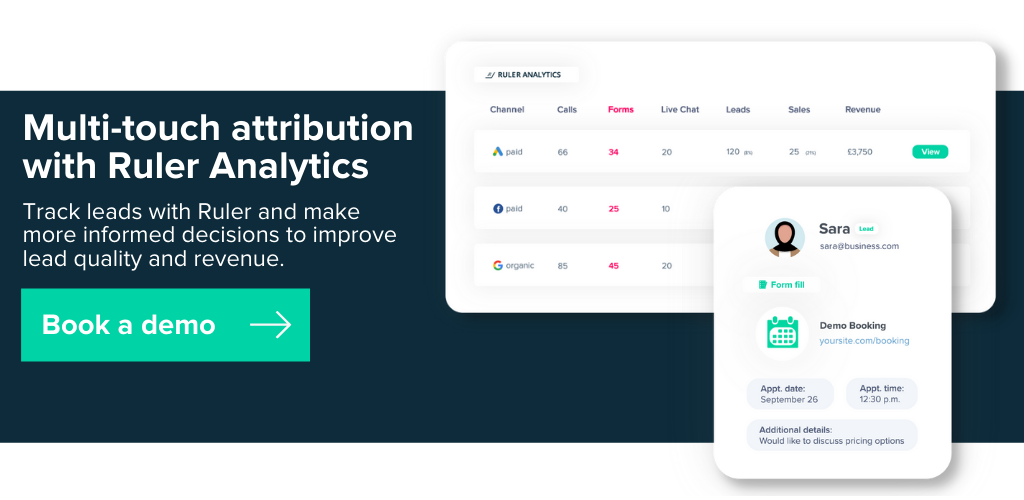
This article was originally published on 16th October 2020 and was last updated on 20th April 2022 for freshness.